No Payne, No Gain
Laila Payne at the Clyde Littlefield Texas Relays track meet in Austin
On your mark.
Laila Payne was poised to tear through the air, the adrenaline heightening each of her senses. She could feel everything: the rough and solid track beneath her, the slight breeze against her neck, the clothes sticking to her skin.
Get set.
A thousand thoughts raced through her mind. She wondered if her stance was perfectly set, she wondered where the girls next to her on the track were from. Tennessee? Louisiana? Georgia? But most of all, she wondered if she was going to win this race.
Go!
She took off at full speed, every fiber of muscle, every molecule in her body, every ounce of her determination entirely focused on running. Her mind could only form one coherent thought: run. And suddenly, she was at the finish line and had officially qualified at one of the biggest track meets in the nation.
Unexpectedly, sophomore Laila Payne started off as a dancer when she was 8 years old and transitioned to track, despite negative opinions about running.
“I actually did not want to. I’m not going to say I didn’t want to run, but track was not the sport that I really wanted to do,” Payne said. “I actually didn’t really fall in love with track until I made it to [the Junior Olympics] for the first time, and I was like, ‘Oh wait, this is actually kind of cool.’’’
Payne’s latest track meet was the prestigious Clyde LittleField Texas Relays, a meet annually hosted by the University of Texas at Austin, including track and field events for high school athletes through college. Track runners from all over the South fly in to compete at this competition, which means tensions are high.
“There was just a lot of pressure, because I knew that there was going to be a lot of college coaches and professional athletes there… You don’t want to mess up in front of all those good people that you look up to. It was so nerve-wracking,” Payne said.
Despite Payne’s nerves prior to a race, her typical demeanor is collected and hyper-focused, on and off the track. When participating in clubs such as Foster Care Awareness Club or Black Student Union, she gives her undivided attention to it. When Payne is running, her mind and body are so fixated on the moment — on running — that she cannot recall a single emotion or thought during races.
“I don’t think when I’m running… your brain goes somewhere else. When I finish races, I really don’t remember much about the race. Like if you asked me what my hurdle looks like on the third hurdle, I’d be like, ‘Well, we’ll have to watch the video to see.’ I think you can kind of get really lost in the moment when you’re running. It’s a great feeling,” Payne said.
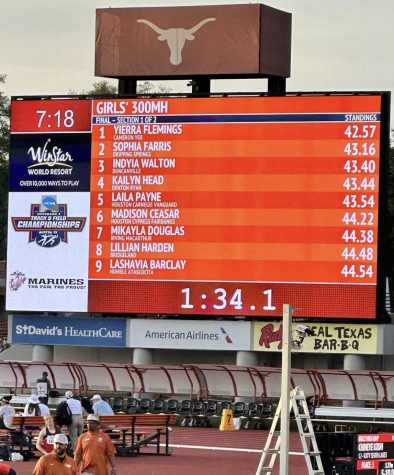
By the time she returns back to reality, Payne usually looks up at the scoreboard and sees that she qualified for the next level of competition. Payne attributes her talent in track to hard work, commitment and ability to test limits. And it hasn’t been easy for her. Morning practices at 5 a.m. and late-night track meets don’t mix well with CVHS’s heavy workload.
“I’m not going to lie, there’s been times when I have lost sleep, like yesterday at districts. The district meet ended up at like 11 o’clock. I got home at like 11:30 [p.m.] and I still had work to do. So I stayed up until one o’clock in the morning, and I woke up at five. If you’re asking me how I balanced it, it’s just sacrificing something. I’m sacrificing my sleep,” Payne said.
Outside of track, Payne has other extracurricular activities to fully round off her schedule to keep her on the move at all times.
“I have foster care awareness on Monday, second half, and then I have SFR on Wednesday, and VSU on Thursday,” Payne said.
Despite all the club meetings, practices, and long nights, Payne has learned to accept that you might not always be meeting your goals or making progress. Slumps are common in every sport, but hitting a plateau has not deterred her resolve. Even with all her gold medals, Payne considers this unfazed perseverance her proudest accomplishment.
“I’ve come to accept that you’re not going to hit a personal record every time you step on the track. You might not run fast every time you step on a track. And so, I’ve [come] to accept that fact and say, ‘Well, I’m going to do the best that I can with what I have right now.’ I think this helped me get through that mindset,” Payne said.
The running experience at the forefront of Payne’s mind was not one of achievement, but one of paralyzing failure at the Junior Olympics in California, when her nerves cost her a crucial race at a national competition. It is what Payne considers her “flop era.”
“I just let everything get into my head, and I let my nerves get to me. So that moment really scarred me for life… I definitely changed from that point forward. It felt so bad to mess up that badly… And it was just awkward [with] my parents like at the end of the race,” Payne said. “They were just silent. I was like, ‘Oh, I know, girl. I know. I know I messed up.’ It was literally my time to shine. Like I had that race, if I would have run the race.”
Going forward from that moment, Payne has proven to embrace confidence at track meets and to stay in her lane, rather than psyching herself out with a jumble of other thoughts.
“When I get nervous, I just try to maintain my confidence. Because when you get unconfident and nervous and you start doubting yourself… that’s too much. So I think when I get nervous, I just try to stay more focused on what I’m about to do… A girl can go break the record and you can’t do anything about that. But what you can do is make sure that you don’t freak out about it,” Payne said.
Payne aspires to be a person that does the best that they can at all times. People like her parents, who also ran in college, and her coach constantly encouraged and supported her to the best of their abilities.
“They put a lot of effort, energy, time and money into making sure that I can properly prepare for my races. So I think that they’ve always been supportive in that. And also my coaches, who take time out of their day. Those coaches are volunteers. They don’t do this for money. They don’t do this because they get paid for it. They do it because they really want to. And so that’s always been really inspirational to me,” Payne said.
Payne has encountered countless ups and downs in her running career and in her life. Yet, she continues to push herself and stay resilient against changes and slumps. The philosophy that forms the backbone of her life is that all you can do is keep working at something regardless of what happens.
“There will be times when you lose races. There’ll be times when you win races. And even though you might lose a race, you could still have a lot of fun just seeing how much progress you’ve made or if you’ve met your goals or not. I think the biggest part of track for me that I enjoy is really being able to visualize yourself and set goals for yourself and just see how far you can go to meet those goals,” Payne said.
Your donation will support the student journalists of Carnegie Vanguard High School. Your contribution will allow us to cover our annual website hosting costs and fund field trips, competition fees, and equipment. We appreciate your support!

It wouldn't be a surprise if the first words Neela Ravi ever uttered were "Swiftie 4 life," or "stream Taylor's version on Spotify." Constantly equipped...

When My-Tran Vo isn’t testing out a new knife by cutting a salami stick for a midday snack, she’s out taking care of the stray cats she feeds. She...

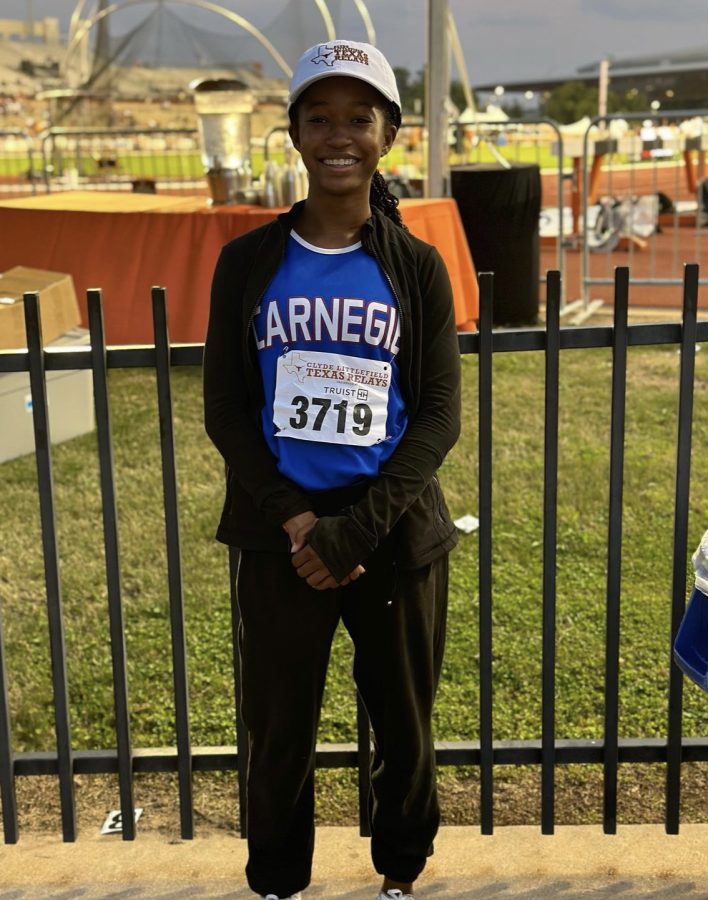




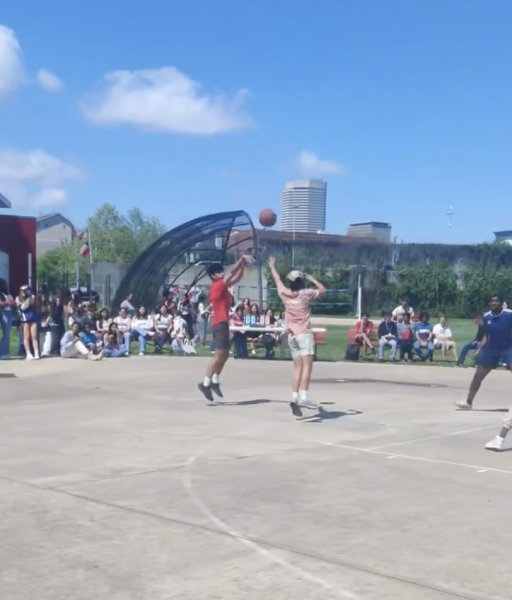
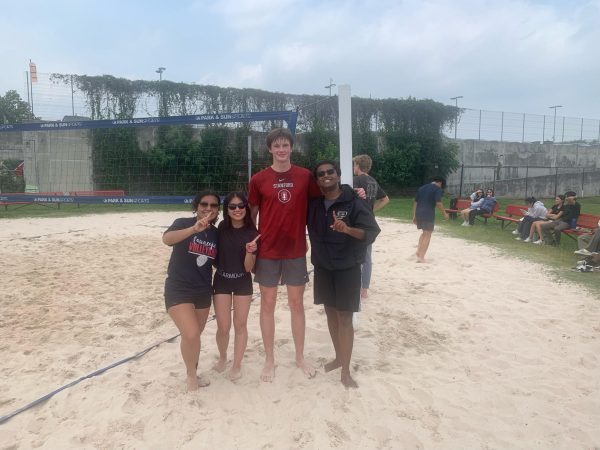
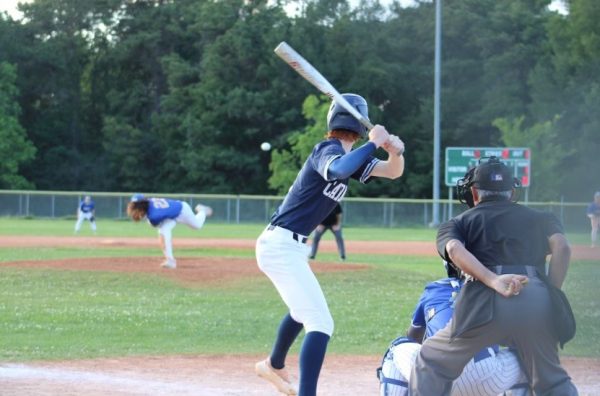
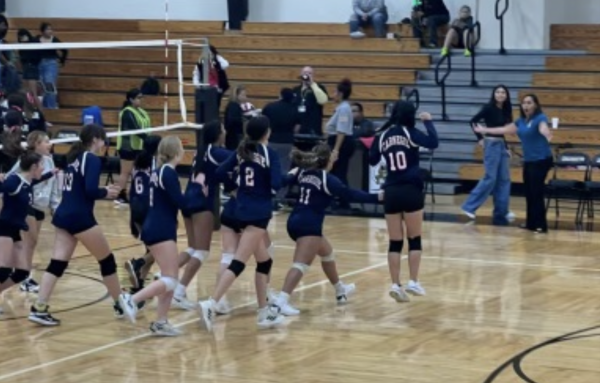
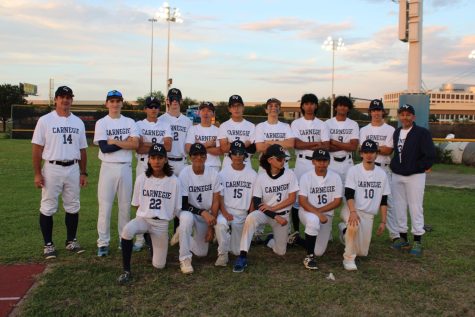
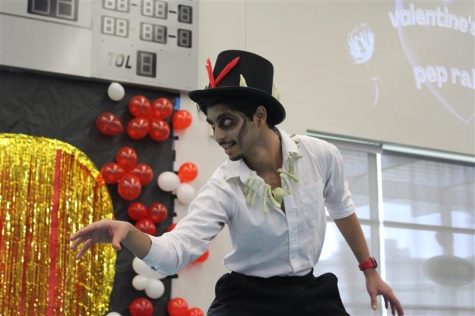
Jingyuan Fan • Apr 24, 2023 at 10:27 am
A well-written feature that truly highlights the personality through quotes. Good job.